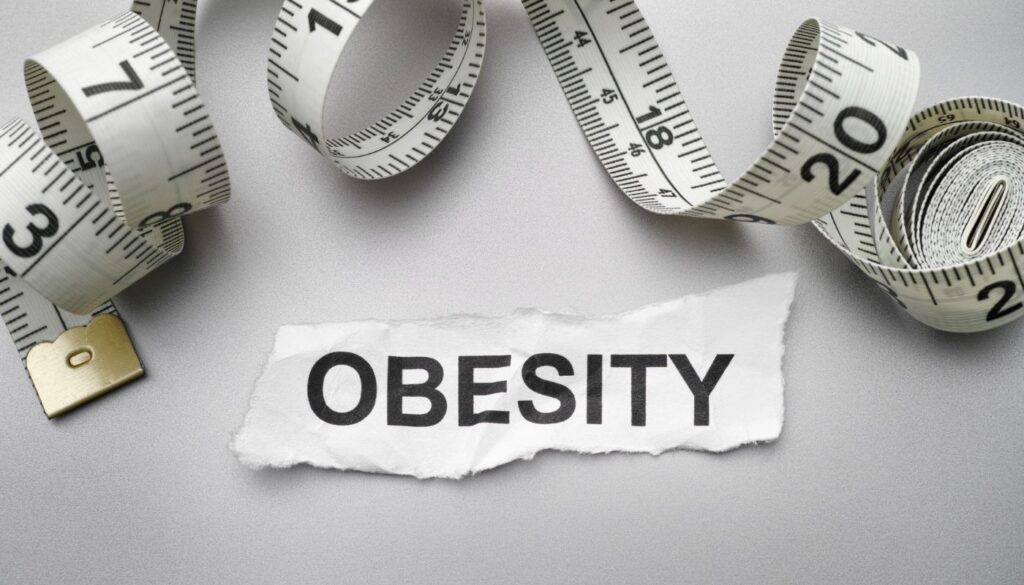
Hypertension and chiropractic
A natural alternative to control hypertension Arterial hypertension, also known as high blood pressure, is a health problem that affects millions of people.
Tel. : 662097657 / 931527281





The obesity It has become a global health crisis. According to the WHO, 39% of the world's population is overweight and 13% of the world's population is obese, affecting more than 700 million people. Since 1975, the obesity rate has tripled, and it kills 2.8 million people each year. In Spain, 22% of adults are obese.
The obesity Obesity has become one of the greatest public health challenges of the 21st century. It affects millions of people worldwide and has not only physical but also emotional and social consequences. But why has obesity reached such alarming levels, and what can be done to prevent or manage it?
In this article, we'll explore what obesity is, its main causes and consequences, and how adopting healthy habits can make a difference in the fight against this condition.
The obesity is an excessive accumulation of body fat that can affect a person's health. It is usually measured through the Body Mass Index (BMI), which calculates the relationship between weight and height. A BMI over 30 is considered obese.
This health problem isn't just aesthetic; it also significantly increases the risk of developing chronic diseases such as type 2 diabetes, cardiovascular disease, and hypertension.
Obesity is the result of an imbalance between calories consumed and calories expended. However, this phenomenon is not limited solely to poor eating habits. Several factors influence its development:
Some people have a genetic predisposition to gain weight more easily. If there's a family history of obesity, the risk may increase.
A sedentary lifestyle is a lifestyle characterized by a lack of regular physical activity and a predominance of activities that require little movement, such as spending long hours sitting in front of a screen, driving instead of walking, or avoiding physical exercise.
This habit reduces the body's energy expenditure and is linked to health problems such as obesity.
Poor nutrition is an unbalanced and unhealthy pattern of food consumption, characterized by excessive intake of ultra-processed products high in sugar, saturated fat, sodium, and empty calories, along with a deficiency of essential nutrients such as vitamins, minerals, and fiber.
In addition, irregular meal consumption, excessive fast food consumption, and lack of adequate hydration are also part of an inadequate diet.
Stress, anxiety, and depression can lead to emotional eating, where food is used as a form of comfort.
In some cases, lack of access to fresh, nutritious foods, coupled with the availability of fast and unhealthy options, contributes to obesity.
Obesity not only affects physical appearance but also has a significant impact on health. Some of its main consequences include:
The good news is that obesity can be prevented and managed through sustainable lifestyle changes. Here are some key recommendations:
A balanced diet provides all essential nutrients in the right amounts to maintain optimal body function. It is based on a varied and proportional combination of macronutrients (carbohydrates, proteins, and healthy fats) and micronutrients (vitamins and minerals), avoiding excesses and deficiencies.
Prioritize fruits, vegetables, whole grains, lean proteins, and healthy fats. Avoid ultra-processed foods and reduce your sodium and added sugar intake.
Advice: Plan your meals in advance to avoid impulsive decisions.
Regular physical exercise is essential for maintaining a healthy weight. It involves performing exercises or activities that increase energy expenditure, such as walking, running, swimming, playing sports, or even everyday activities like climbing stairs or doing housework.
To be considered regular, physical activity must be done consistently, at least 150 minutes of moderate activity or 75 minutes of intense activity per week, according to the recommendations of the World Health Organization (WHO).
Advice: Find an activity you enjoy to stay consistent.
Staying well hydrated throughout the day is key to controlling your appetite and promoting optimal metabolism. It's essential to prioritize drinking water in its natural form, without replacing it with herbal teas or other beverages.
AdviceAlways carry a bottle of water with you and avoid sugary drinks.
Insufficient sleep can disrupt the hormones that regulate hunger, increasing the desire to consume unhealthy foods. To improve your well-being, it's essential to ensure you get between 7 and 9 hours of sleep per night, which helps balance these hormones and promotes better physical and emotional health.
Advice: Make sure you get the necessary hours of sleep in a quiet, uninterrupted environment, and follow a regular schedule that respects your natural rhythms.
Practicing relaxation techniques such as deep breathing or meditation can help reduce stress and prevent emotional eating.
Advice: Make time for activities that allow you to unwind and relax, such as spending time outdoors or setting clear boundaries to avoid emotional burnout.
If obesity affects your quality of life or if you've tried to make changes without success, it's advisable to seek professional support. An interdisciplinary team that includes nutritionists, psychologists, and physical health specialists can help you achieve your goals safely and effectively.
The obesity It's a health challenge that can be prevented and addressed with healthy habits. Adopting a balanced diet, maintaining an active lifestyle, managing stress, and prioritizing emotional well-being are essential steps to regaining balance and improving your quality of life.
Remember that every small change counts. Start today with healthier choices and build a future of greater well-being.

We encourage you to take care of yourself from now on, without waiting until you feel sick or have various symptoms.
These are some of the answers we hope to answer your questions about chiropractic, for more information visit our FAQ
Yes very sure. The Chiropractic adjustment acts on the nervous system, in order to allow the body's own recovery capacity to function normally.
Millions of people of all ages and with different problems go to the chiropractor, which has negative impacts.
Because? Chiropractic has an excellent safety record, avoiding invasive procedures.
Several studies have demonstrated that chiropractic care is 250 times safer than anti-inflammatories medical treatment.
The goal of chiropractic is to promote better body functionality.
The Central Nervous System regulates every cell of our body.
Chiropractic focuses on correcting the vertebral subluxations and interferences generated on the vertebrae and avoiding correct body functioning.
The vast majority of its users feel better, recover faster and minimize the use of medications and surgeries.
Many people who enjoy chiropractic care feel less stress, have more vitality and live better daily.
No, it isn't. Chiropractic is a sanitary profession complementary to and different from medicine (according to WHO).
It is studied in specialized chiropractic universities. The chiropractic professional receives a minimum training of 5 years that guarantees the quality and safety of the service it offers.
During the chiropractic university career, you don't study surgery or pharmacy but deeper physiology, anatomy, radiology, neurology, and specific manual chiropractic techniques.
As this profession hasn't been approved yet in Spain, you must go to a "true" chiropractic.
Many people use this legacy to practice manipulations of the vertebral column without the correct studies and knowledge.
For this reason, it is essential that, if you are looking for a chiropractor, you check the web of Asociación Española de Quiropráctica, where you can find recognized professionals with studies.

EIXAMPLE
SANT ADRIÀ
RELATED POSTS

A natural alternative to control hypertension Arterial hypertension, also known as high blood pressure, is a health problem that affects millions of people.
Our patients






| Cookie | Duration | Description |
|---|---|---|
| cookielawinfo-checkbox-analytics | 11 months | This cookie is set by GDPR Cookie Consent plugin. The cookie is used to store the user consent for the cookies in the category "Analytics". |
| cookielawinfo-checkbox-functional | 11 months | The cookie is set by GDPR cookie consent to record the user consent for the cookies in the category "Functional". |
| cookielawinfo-checkbox-necessary | 11 months | This cookie is set by GDPR Cookie Consent plugin. The cookies is used to store the user consent for the cookies in the category "Necessary". |
| cookielawinfo-checkbox-others | 11 months | This cookie is set by GDPR Cookie Consent plugin. The cookie is used to store the user consent for the cookies in the category "Other. |
| cookielawinfo-checkbox-performance | 11 months | This cookie is set by GDPR Cookie Consent plugin. The cookie is used to store the user consent for the cookies in the category "Performance". |
| viewed_cookie_policy | 11 months | The cookie is set by the GDPR Cookie Consent plugin and is used to store whether or not user has consented to the use of cookies. It does not store any personal data. |

We offer you a special offer on your first visit to our chiropractic center.
Includes: